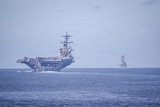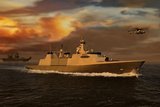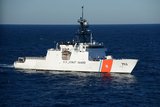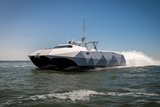Philippine Coast Guard MRRV commissioned
The Philippine Coast Guard (PCG) has received its third multi-role response vessel (MRRV) from Japan, the agency announced on 7 March. The vessel was commissioned into the service during a ceremony held at the PCG's headquarters in Manila.
With a standard cruising speed of 25 knots and a range of 1,500nm, the vessel features fire monitors, night vision camera, radio direction finder, a work boat, and the bullet-proof navigational bridge.
The MRRVs will serve as the primary rescue vessels within the PCG area of responsibility (AOR). They will provide assistance to control oil pollution and protect the marine environment; support enforcement of all applicable maritime laws within the designated AOR particularly relating to illegal fishing and sea patrol; serve as a quick response platform during relief operations; and provide transport and logistical support.
The vessels are being built by the Japan Marine United (JMU) Corporation in Yokohama, Japan, as part of the Maritime Safety Capability Improvement Project project. JMU's contract includes the supply of standard spare parts and tools, crew training, ocean transportation, and marine insurance. The first MRRV was delivered in August 2016.
More from Naval Warfare
-
![As Indonesia doubles up its order, who else is looking at the Arrowhead 140 frigate design?]()
As Indonesia doubles up its order, who else is looking at the Arrowhead 140 frigate design?
The adaptable design of Babcock’s Arrowhead 140 frigate, already selected by the UK Royal Navy and Poland, has led to more orders from Indonesia while other countries continue to weigh it up.
-
![How far will the US Navy’s FF(X) design deviate from the Legend-class?]()
How far will the US Navy’s FF(X) design deviate from the Legend-class?
The new frigate class’s focus on modularity, speed to build and enhanced armament align with the priorities of the US Navy’s Golden Fleet.
-
![How China’s naval advancements are pushing the US Navy to innovate]()
How China’s naval advancements are pushing the US Navy to innovate
The US Navy is set to invest $30 billion in artificial intelligence, cyber, space and autonomy research and development efforts in FY2026 as the force rethinks how it fights in light of China’s naval rise.





















